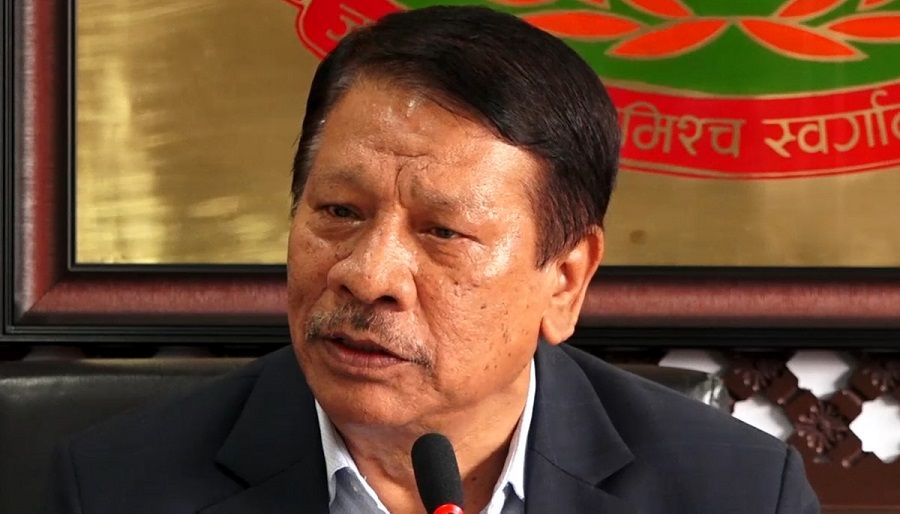'Nation Must Unite to Put an End to Corruption'

Deputy Prime Minister and Urban Development Minister Prakash Man Singh has underlined the need for an entire nation to unite against corruption, which he described as "an organized crime" that undermines democratic institutions and the State system.
Speaking at a programme marking International Anti-Corruption Day in Patan today, Deputy Prime Minister Singh emphasized that his government is committed to eliminating corruption through policy and legal measures. The theme of this year's programme, 'Building Tomorrow's Integrity: Anti-Corruption Solidarity with Youths', was highlighted by the minister.
Corruption is retarding the nation's development by promoting bribery and economic indiscipline, while increasing political instability by affecting the election system, Singh said. "The government is carrying out works with the thinking that the State should be stringent and ruthless when it comes to minimizing and checking corruption," he added.
President of the Parliamentary Public Account Committee Rishikesh Pokhrel stressed on the need for unity among all concerned agencies in preventing and checking corruption. He emphasized the importance of formulating necessary laws to put an end to corruption, which is becoming complex due to technological advancements.
Leaders from various sectors, including Ramhari Khatiwada, President of the House of Representatives State Affairs and Good Governance Committee; Prem Kumar Rai, CIAA Chief Commissioner; Madan Krishna Shrestha, President of Transparency International Nepal; Eaknarayan Aryal, Government Chief Secretary; Phanindra Gautam, Secretary at the Office of the Prime Minister and Council of Ministers (OPMCM), also spoke on the topic.
They stressed on the need for a collective fight against corruption and good governance. The House of Representatives' State Affairs and Good Governance Committee plans to deliberate on two bills related to the Commission for the Investigation of Abuse of Authority (CIAA).
The International Anti-Corruption Day, observed globally on December 9 every year, is aimed at voicing against the scourge of corruption across the globe. It was recognized by the United Nations General Assembly in 2003 and Nepal ratified the Anti-Corruption Convention in 2011.
As the nation marks this important day, there is a growing concern about the increasing problem of corruption both within and outside Nepal. The anti-corruption bill currently implemented in 191 countries worldwide will be further strengthened to bring better governance and accountability in public institutions.
